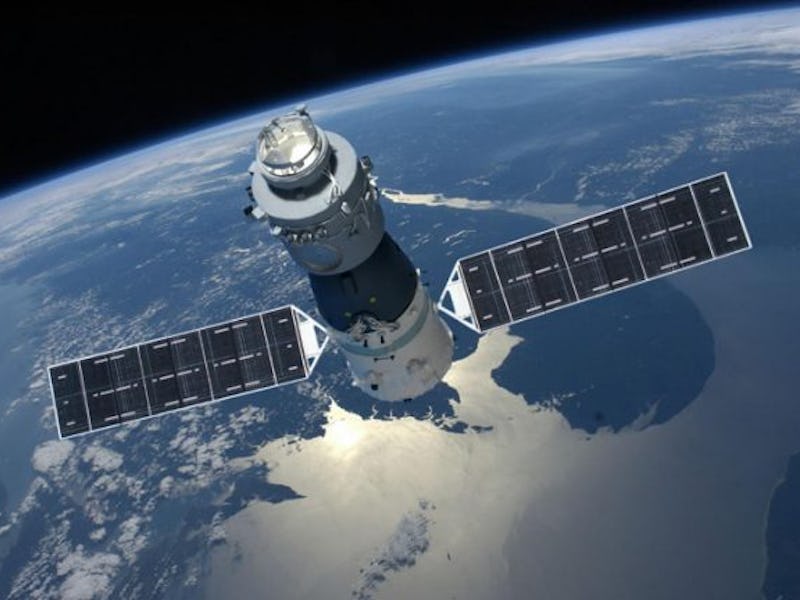China's Lost Space Station Isn't Going to Kill Us All With Toxic Chemicals

China’s doomed space lab, Tiangong-1, is set to reenter Earth’s atmosphere sometime in March, according to a not-for-profit group called the Aerospace Corporation. Though the event will almost definitely isn’t a major threat to human life, that hasn’t stopped the usual suspects from rounding up all the ways Tiangong-1 will usher in the apocalypse.
“China’s Tiangong-1 space station could crash into Europe within WEEKS with ‘toxic’ chemical on board,” a headline from The Sun reads. While it’s admirable that the paper tried to report a correct fact, here’s what’s actually going on with Tiangong-1 and that “toxic chemical.”
The substance in question is called hydrazine — it’s a colorless, flammable liquid used as fuel for spacecraft and rockets. To several tabloids’ credit, the Aerospace Corporation did indeed note in a report that Tiangong-1 could be carrying some leftover hydrazine, even after it crashes to Earth — and that hydrazine could be dangerous if people feel suddenly compelled to touch it.
“Potentially, there may be a highly toxic and corrosive substance called hydrazine on board the spacecraft that could survive reentry,” The Aerospace Corporation writes. “For your safety, do not touch any debris you may find on the ground nor inhale vapors it may emit.”
So keeping in mind the Aerospace Corporation’s skeptical language, it’s a bit unnerving — but not unsurprising — to see headlines like this cropping up:
Screenshot from BGR
Toxic chemicals aside, no one should be worried about getting walloped by this space bus. And although no one’s entirely sure where it will crash down, the Aerospace Corporation has a general idea — “somewhere between 43° North and 43° South latitudes.”
Tiangong-1 launched on board a Long March 2F/G rocket back in 2011. The space lab — nicknamed the “heavenly palace” — was only supposed to remain active for two years, but the mission’s life span was extended in order to conduct more research. It all sounded like a good idea, until mission officials announced in 2016 that they had pretty much lost control of the spacecraft.
While Tiangong-1 certainly raises a lot of questions right now, preemptively stoking fears about it isn’t the answer. Trust me, there are plenty of other things to be worried about at this moment in history.